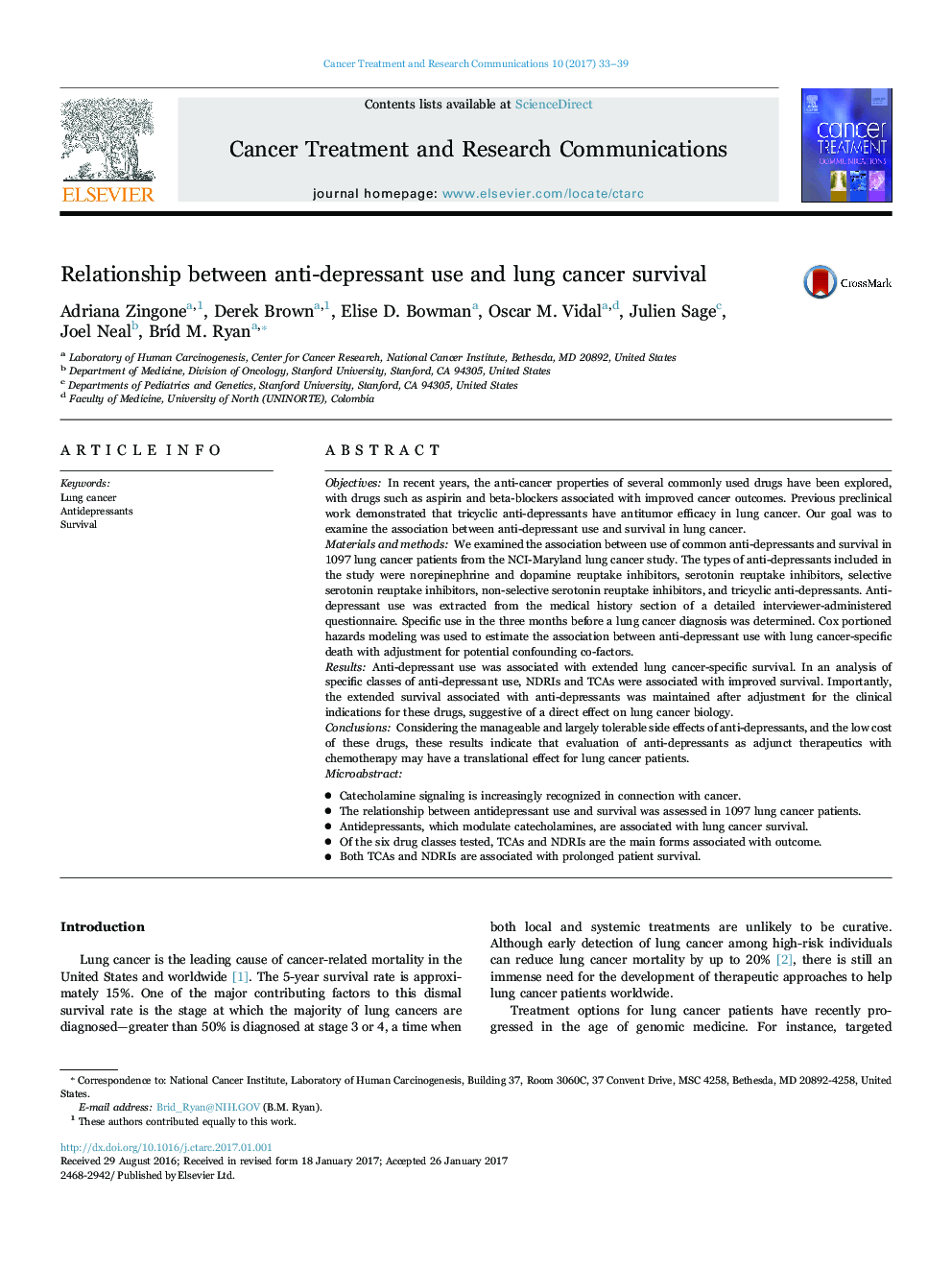| Article ID | Journal | Published Year | Pages | File Type |
|---|---|---|---|---|
| 5697524 | Cancer Treatment and Research Communications | 2017 | 7 Pages |
Abstract
ObjectivesIn recent years, the anti-cancer properties of several commonly used drugs have been explored, with drugs such as aspirin and beta-blockers associated with improved cancer outcomes. Previous preclinical work demonstrated that tricyclic anti-depressants have antitumor efficacy in lung cancer. Our goal was to examine the association between anti-depressant use and survival in lung cancer.Materials and methodsWe examined the association between use of common anti-depressants and survival in 1097 lung cancer patients from the NCI-Maryland lung cancer study. The types of anti-depressants included in the study were norepinephrine and dopamine reuptake inhibitors, serotonin reuptake inhibitors, selective serotonin reuptake inhibitors, non-selective serotonin reuptake inhibitors, and tricyclic anti-depressants. Anti-depressant use was extracted from the medical history section of a detailed interviewer-administered questionnaire. Specific use in the three months before a lung cancer diagnosis was determined. Cox portioned hazards modeling was used to estimate the association between anti-depressant use with lung cancer-specific death with adjustment for potential confounding co-factors.ResultsAnti-depressant use was associated with extended lung cancer-specific survival. In an analysis of specific classes of anti-depressant use, NDRIs and TCAs were associated with improved survival. Importantly, the extended survival associated with anti-depressants was maintained after adjustment for the clinical indications for these drugs, suggestive of a direct effect on lung cancer biology.ConclusionsConsidering the manageable and largely tolerable side effects of anti-depressants, and the low cost of these drugs, these results indicate that evaluation of anti-depressants as adjunct therapeutics with chemotherapy may have a translational effect for lung cancer patients.Microabstract
- Catecholamine signaling is increasingly recognized in connection with cancer.
- The relationship between antidepressant use and survival was assessed in 1097 lung cancer patients.
- Antidepressants, which modulate catecholamines, are associated with lung cancer survival.
- Of the six drug classes tested, TCAs and NDRIs are the main forms associated with outcome.
- Both TCAs and NDRIs are associated with prolonged patient survival.
- Catecholamine signaling is increasingly recognized in connection with cancer.
- The relationship between antidepressant use and survival was assessed in 1097 lung cancer patients.
- Antidepressants, which modulate catecholamines, are associated with lung cancer survival.
- Of the six drug classes tested, TCAs and NDRIs are the main forms associated with outcome.
- Both TCAs and NDRIs are associated with prolonged patient survival.
Keywords
Related Topics
Health Sciences
Medicine and Dentistry
Oncology
Authors
Adriana Zingone, Derek Brown, Elise D. Bowman, Oscar M. Vidal, Julien Sage, Joel Neal, BrÃd M. Ryan,
